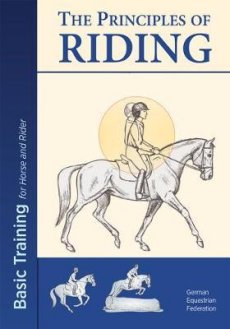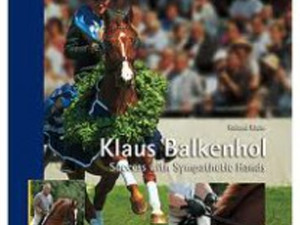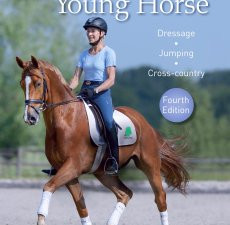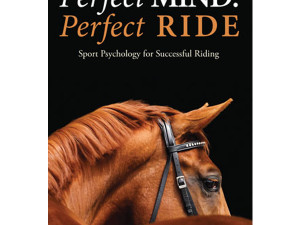Principles of Riding -Rev Edition
Principles of Riding -Rev Edition
$49.95
Principles of Riding -Rev Edition
Basic Training for Horse & Rider – German National Equestrian Federation
The first edition of The Principles of Riding was published more than 50 years ago, imparting mandatory basic knowledge for all areas of equestrian sport and horse-keeping and this 28th edition, Basic Training for Horse and Rider, has been completely revised regarding language and content, while still taking into account the well-established principles.
The consideration of traditional principles leads to the education and training of the horse according to its nature and thus to its health, well-being and performance capability. The horse’s instincts and natural behaviour are presented in detail as the basis of communication and understanding between horse and rider.
Paperback – 192 pages
In stock
Related products
Success with Sympathetic Hands
Success with Sympathetic Hands $89.95Success with Sympathetic Hands – hardback
This beautifully presented book, which covers the life and work of Klaus Balkenhol, has appropriate photos with clear descriptions that open a visual world that leads the reader through the various dimensions of the sport of dressage.
Klaus Balkenhol “Our guiding principle should be to allow the horse to be a horse”
Accompany Klaus on the path of the development of a horse from youngster to Grand Prix level.
Ride Better with Christoph Hess
Ride Better with Christoph Hess $39.95Ride Better with Christoph Hess
Christoph Hess, a FEI Judge in both dressage and eventing, is highly respected around the world as a teacher of riding and the development of the horse according to classical principles. Here he collects some of his very best riding and training tips along with well-honed insight related to the topics that he finds most often challenge equestrians and their equine partners.
Ride Better with Christoph Hess provides thoughtful, easy-to-apply advice when dealing with issues with the gaits, in particular the walk and canter; high-headedness or the horse that is “too light” in the poll; inconsistency of performance; leaning on the bit; falling out; lack of straightness; and much more. Throughout Hess emphasises that a rider must always strive to improve, for the simple reason that you can always do better for your horse. While competitive and training goals do, of course, bring a certain satisfaction, it is having an equine partner who is contented in his work and happy in your company that rewards most. This lesson, and all Hess’s tips and solutions, are invaluable to equestrians of every level—everyone can walk away from this book a better rider.
Basic Training of the Young Horse Klimke
Basic Training of the Young Horse Klimke $57.95Basic Training Young Horse Klimke
Dressage- Jumping-Cross Country
The first year under saddle sets the building blocks for the future of a riding horse: with a solid basic training he can do what is required of him willingly while remaining in the best of heath.
- Basic education and handling from foal hood
- Lungeing and free-schooling
- Backing and training under saddle
- Developing impulsion from suppleness
- Assessing and improving basic gaits
- Cavalletti work
- Jumping training
- Cross-country training
- Preparing for the first competition
Ingrid Klimke follows in the footsteps of her famous father, Reiner Klimke. A successful Olympic participant and European bronze medallist, she is one of very few riders to have achieved major successes at the highest level in both dressage and three-day-eventing.
Perfect Mind Perfect Ride
Perfect Mind Perfect Ride $45.00Perfect Mind Perfect Ride
Possessing the right mind-set and relevant mental skills has long been considered vital in achieving top performances in all sports. And yet, to many riders mental fitness still remains something of an afterthought. In Perfect Mind: Perfect Ride, the author demonstrates how to develop and achieve the right kind of attitude, motivation and mental skills to make the most of the rider’s abilities whether it be riding as a recreation or as a competitive sport. Horses are highly sensitive flight animals – they’ll react first and ask questions, well, never…! In essence, this means that every time riders get on their horse, they need to be fully committed, aware and in control of their body, their thoughts and their emotions, in order to communicate with their horse in precisely the right kind of manner.






